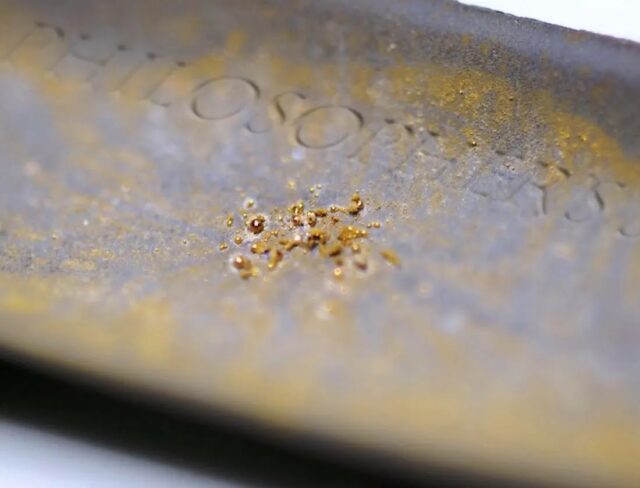Imagine a living organism that can turn toxic waste into pure gold. It sounds like something out of a fantasy novel, but scientists have discovered a real-life microbe that does exactly that. Meet Cupriavidus metallidurans — a rare bacterium with an extraordinary talent for surviving in metal-rich, poisonous environments.
🧬 Nature’s Alchemy in Action
This remarkable microorganism thrives where most life would perish. In toxic, metal-laden soils, it performs a unique chemical transformation:
- It ingests gold chloride, a toxic compound found in certain environments.
- Inside the bacterium, complex biochemical processes neutralize the toxin.
- The end result? Harmless, solid 24-karat gold particles — essentially, the microbe “excretes” tiny nuggets of pure gold.
While this isn’t a practical gold rush just yet, the discovery is a fascinating example of how life adapts to extreme conditions.
🌍 A Cleaner Future for Mining
Traditional gold mining often relies on harmful chemicals like cyanide, which can contaminate water and soil. The idea of using bacteria to recover precious metals offers exciting possibilities:
- Eco-friendly extraction — no need for toxic chemicals.
- Waste recovery — metals could be reclaimed from industrial waste or contaminated sites.
- Sustainable practices — reducing the environmental footprint of mining operations.
If scaled up, microbial gold production could help industries transition toward greener, safer methods of resource extraction.
🔬 Beyond Gold: The Bigger Picture
The significance of Cupriavidus metallidurans goes far beyond its golden byproduct. This discovery highlights the untapped potential of microorganisms in solving global challenges:
- Bioremediation — cleaning up polluted environments.
- Industrial innovation — developing new, sustainable manufacturing processes.
- Scientific insight — understanding how life adapts to extreme conditions.
Nature’s smallest engineers may hold the keys to some of our biggest environmental and industrial problems.
💡 Final Thoughts
The gold-making bacterium is a reminder that the natural world still holds countless secrets waiting to be uncovered. While we may not see bacteria-powered gold mines tomorrow, this breakthrough opens the door to cleaner, more sustainable ways of working with Earth’s resources.








